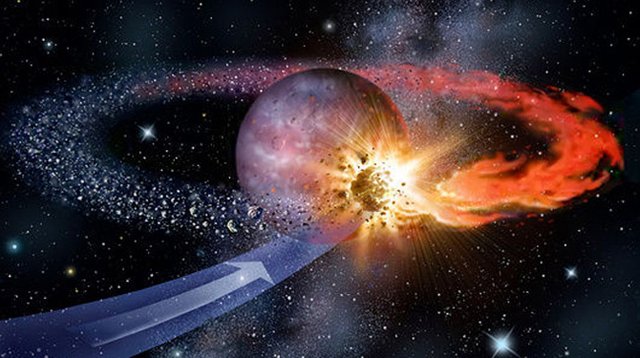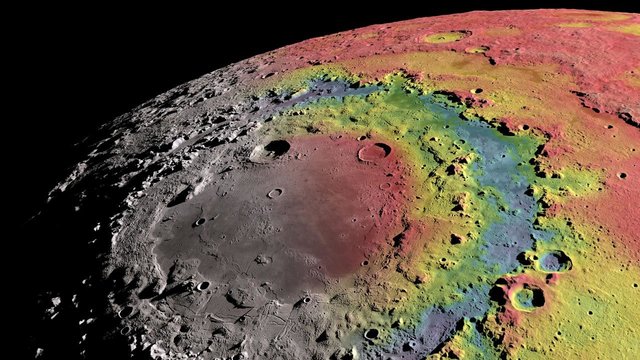Duck! It's a Meteorite!
The chances are slim that a large asteroid will strike the earth anytime soon. But can we be certain of that? And what would happen to us if one did?
Craters, craters everywhere
Look up close at any solid-surfaced body in our solar system and you will see craters, the remnants of collisions with comets and asteroids. Even asteroids have craters.
You can see the craters on the moon with the naked eye. Earth too has of course been struck countless times by these bodies, but because of processes such as weathering and erosion, the obvious evidence has been destroyed.
Asteroid strikes occur at a much lower frequency since 3.9 billion years ago when there was intense cratering. Our moon itself was formed from the debris from a massive body hitting the earth about 4.5 billion years ago.

The formation of the moon image credit
Things are much more orderly now. Even asteroids largely behave themselves. Most follow simple circular orbits between the planets Mars and Jupiter. But they can knock into each other or be thrown into a different orbit by Jupiter, the bad boy in our planetary neighbourhood.
In the shooting gallery
But these events, though common and fairly predictable, are extremely rare within a human lifetime. In fact, they are rare in the entire history of our species. No human in the past 1000 years is known to have been killed by a meteorite or by the effects of one impacting. We're lucky (and alive) to have an atmosphere that burns up almost all of the smaller asteroids, or greatly reduces the size of larger ones.
Most of the material hitting earth is in the form of dust and very small (less than 10 grams) particles. But it's estimated that 37,000 to 78,000 tons of this material falls to the earth every year. That includes the hundreds of meteorites bigger than 10 grams that hit the earth every day.
Not to be a doomsayer, but that doesn't mean that catastrophe won't strike. The US government recently announced a 10-year project to increase its readiness for preparing for and preventing catastrophic asteroid impacts. And no, it's not Trump's Space Force doing that.
The big one
The earth has been hit by huge meteorites many times in its history. In its early history, amongst all the massive bombardment, Life took hold and somehow survived. Those early life forms took refuge from the firestorms above by escaping deep into the ground. Time and time again they did this and, luckily for us, they survived.
Whereas Life-in-general seems to always find a way of surviving the worst catastrophes, humans would not be so lucky. Have a look at this video to get an idea of what would happen to the earth if it got struck by a huge asteroid, 500 km in diameter. It is a simulation produced by Discovery Channel a decade ago. Don't expect a happy ending.
Would humans survive that? C'mon.
Also posted on Weku, @tim-beck, 2018-11-02
